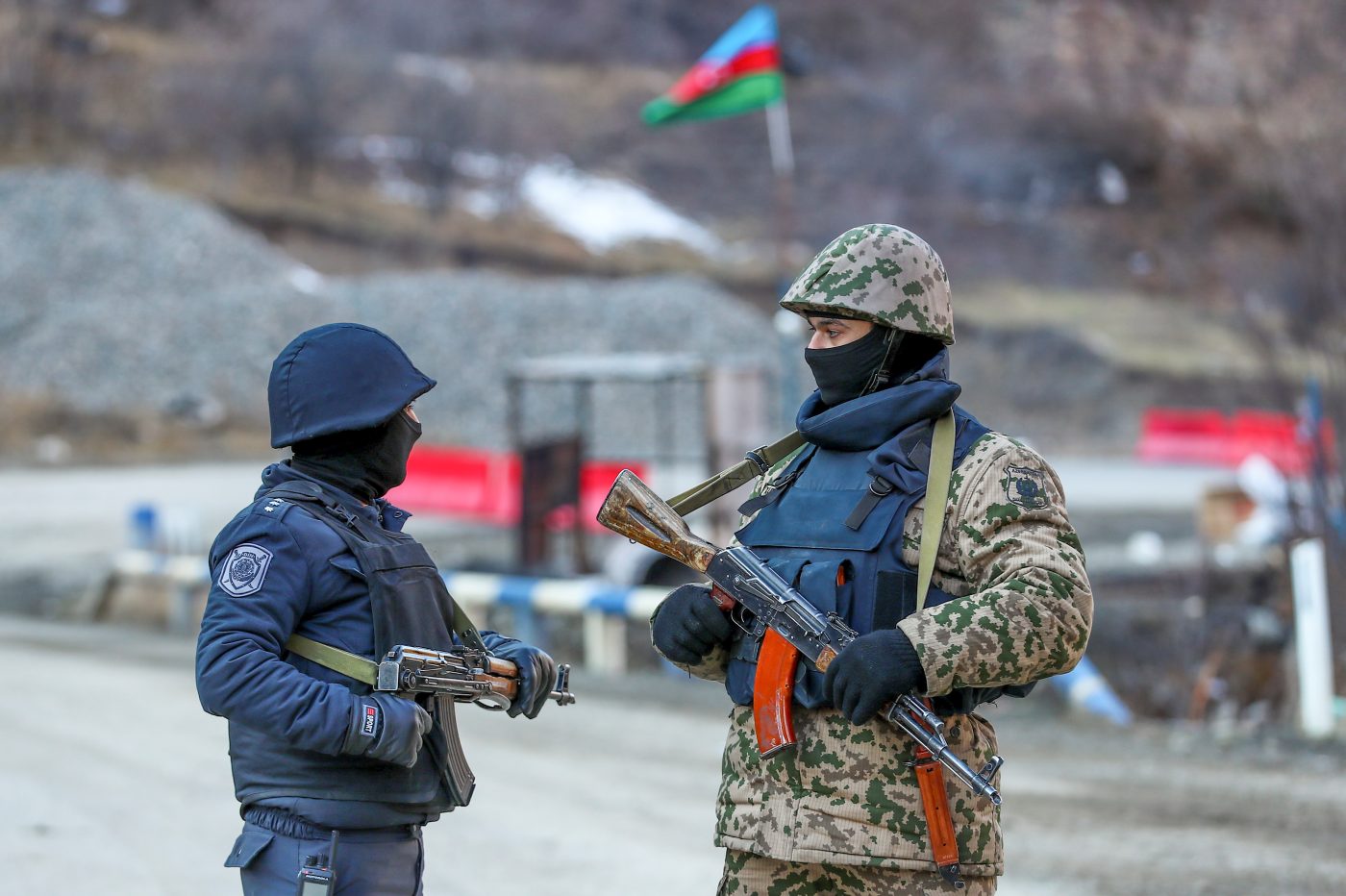For almost four months, Azerbaijan has been blocking traffic into Nagorno-Karabakh, where it won a war in 2020. That has left more than 120,000 Armenians, including 30,000 children, in an increasingly perilous position. Recently it has stepped up the pressure on Armenia, blocking an inferior alternative route. Tensions are now on the rise. War may follow.
The Azeri reasoning for the blockade (e.g. illegal mining) was negated by the International Court of Justice, which ordered an end to the blockade in February. There is also a growing belief among Armenian analysts and politicians that Azerbaijan is seeking to use force against the remaining Armenian population in the region, especially after Azerbaijan’s President Ilham Aliyev told the Karabakh Armenians that they are “free to leave.” Local people are already seeing food, healthcare, medical supplies, and energy in short supply; highlighting how much power the Azeris now exert.
As the humanitarian emergency continues, France — which has historically close ties to Armenia — has led calls to end this stranglehold. French Foreign Minister Catherine Colonna will visit Armenia and Azerbaijan at the end of April. Even Russia — which habitually puts its own interests above those of smaller South Caucasus nations — issued a rare criticism against Azerbaijan’s recent military moves.
The Azeri reasoning is plain. Its forces won a comprehensive victory in 2020 and with Russia distracted by its disastrous war in Ukraine, it sees an opportunity to go even further. The Armenians of Nagorno-Karabakh may well lose their homes, and a new conflict may well break out. Azerbaijan may also cast covetous eyes on the so-called Zangezur corridor through Armenia’s Syunik Province, which sits between the main part of its lands and its exclave of Nakhichevan.
There are positive stories too such as successful adjustments in some parts of the border between the countries, but overall the picture is bleak.
Who can halt this? France is concerned, but Azerbaijan may calculate that the wider European Union (EU) is less ardent in its support for Armenia. With Russia’s energy supplies now gone, the Azeris are embraced as a significant new energy provider. Is Europe willing to suffer another energy shock after the enormous costs of the last one?
Russia, as noted, is in no condition to dictate. While it has some hundreds of ceasefire monitors around Nagorno-Karabakh, and a base in Armenia, its personnel have been stripped to the bone. The Kremlin is contemptuous of soft power and therefore has very little to deploy.
Turkey might be able to help if it is willing. A longtime ally and military supplier to Azerbaijan, there is now a rapprochement with next-door neighbor Armenia. The two opened the common border for diplomats and third-country nationals, the first such agreement in 30 years. Azerbaijan dislikes this and continues to insist that a final resolution of the Nagorno-Karabakh issue should move in parallel with any thaw in Armenia-Turkey relations.
Turkey has its own reasons to improve ties with Armenia. First, trade would benefit its eastern border areas. Moreover, and perhaps more importantly, the rapprochement could gradually dilute Russia’s influence over Armenia and further extend Turkish influence.
Azerbaijan may be in a strong position at the moment, but things can change rapidly in the South Caucasus, which explains its push for a rapid resolution of the Nagorno-Karabakh problem in its favor. Armenia resists, but it has ever fewer tools to withstand the pressure, which may soon include an offensive from a far better-equipped Azeri military.
Russia might once have been the guarantor of Armenia’s security but that’s no longer the case. It has on numerous occasions turned a deaf ear to Armenia’s requests for military help and security guarantees through the virtually moribund Collective Security Treaty Organization (CSTO.)
More worryingly, Russia is now somewhat closer to Azerbaijan than to Armenia. The former provides a land link to Russia’s new best friends in Iran, which assists with trade and sanctions evasion.
Distrust has been building for a long time but has become more palpable recently. In January Armenian Prime Minister Nikol Pashinyan argued that “Russia’s military presence in Armenia not only does not guarantee Armenia’s security but, on the contrary, creates threats to Armenia’s security.” Later on, it canceled its participation in CSTO drills.
The Kremlin has meanwhile criticized the European Union’s (EU’s) unarmed mission to Armenia and was angered more recently by Armenia’s plans to join the Rome Statute of the International Criminal Court (ICC.) It warned of “extremely negative consequences” should this occur. Armenia’s timing could not have been better if it aimed to get the Kremlin’s attention — the announcement came days after the ICC’s arrest order for Vladimir Putin.
A new round of military exchanges in the South Caucasus is reasonably likely and could be bigger than September’s outbreak. With Russia expecting a spring offensive from Ukraine, it has little ability to play the heavyweight. Azerbaijan has proved more than willing to ignore Russian demands and an unanchored and vulnerable Armenia will seek new ties with Turkey and especially Iran.
Whatever the outcome of Russia’s war in Ukraine, its rapid loss of power in the South Caucasus has been sobering. It is no longer the greatest power in the area and is detested by the smaller nations.
Emil Avdaliani is a professor of international relations at European University and a scholar of silk roads.
Europe’s Edge is CEPA’s online journal covering critical topics on the foreign policy docket across Europe and North America. All opinions are those of the author and do not necessarily represent the position or views of the institutions they represent or the Center for European Policy Analysis.





